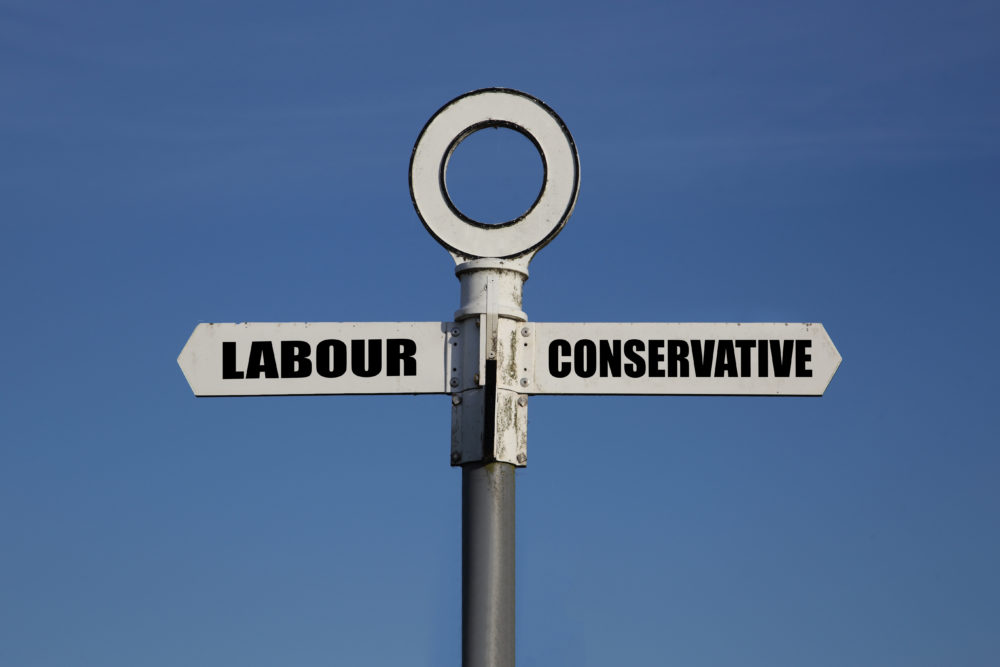Whenever you’re asked about yourself on a diversity monitoring form, you’ll see the same checks: age, sex, ethnicity, sexuality, religion.
You’re rarely asked anything about your political leaning when applying for a job. I find that odd.
I just feel like other demographics are often so well addressed, especially in working environments. Politics is a hotbed for heated discussion, but it’s never talked about in the same way by employers, even though it’s something that affects us all in a way that the other demographics might not.
This isn’t limited to individual businesses either; it’s enshrined in law.
Characteristics protected by the Equality Act 2010 are:
- Age
- Disability
- Gender reassignment
- Marriage and civil partnership
- Pregnancy and maternity
- Race
- Religion or belief
- Sexual orientation
It’s been eight years and, though this list covers important factors, I think it needs an update to include political views. Mental and physical health should be there too, but that’s a different article altogether.
In a pre-Brexit and Trump era, there weren’t the polarised views that there are now. Or maybe there were, but the less popular ones were kept schtum.
Even if it’s not acknowledged, it doesn’t mean that political leanings aren’t affecting your business in some manner. By giving it too little attention, it’s likely skewing your diversity figures in a way that you hadn’t thought about.
Like attracts like
It’s no secret that companies that have stronger politics, like national newspapers, will be more appealing to candidates that agree with its beliefs.
I was speaking with an employee at Lush earlier in the year and asked if you needed to be vegetarian/vegan and against animal testing to work at the company. She said that you don’t, but it helps.
This was in the midst of the #spycops controversy, calling for action against undercover police officers who form relationships with activists and disappear.
Inclusion and diversity specialist Stephen Frost, founder of Frost Included, says that this attraction to familiarity does exist. It’s called homophily, the natural and normal tendency of humans to form into tribes. ‘We prefer sameness to difference, even though difference could be more of an asset to the company and better fill a skills gap.’

He says that companies in particular could do well with a mix of political views.
‘A right-wing newspaper might be stronger for having left-wing recruits challenge and speak up in editorial meetings. A left-leaning organisation might benefit from internal challenge from right-wing perspectives.
‘Of course, it’s not just left and right – it’s more globalist and nationalist these days. But as Brexit has shown us, bubbles of sameness are alive and well and companies would benefit from difference more than most.’
The downsides of having different views
If you’re in desperate need of a job, is it worth compromising your politics for work? Would there be a risk of it leaking over into your working life?
The boundaries between our online and offline lives are no doubt fuzzy, but the internet creates networks of echo chambers because it’s so easy to find like-minded people.
In the real world, having a fundamentally different set of views can be isolating for an employee. This poses risks of affecting happiness at work and in turn, their productivity.
Frost says that he’s seen examples of employees not ‘coming out’ when they have a minority political view.
Smaller businesses are more likely to have problems finding diverse candidates. As they have a harder time finding people with suitable skillsets anyway, they may have no choice but to keep their political range limited.
How do you promote political diversity in the workplace?
Of course, you can’t blatantly ask about political beliefs during the interview process, But Frost says there are a few things that you can do to promote political diversity.
‘Conduct a skills audit and work out what you are missing. Interrogate the criteria so they are valid and help fill that skills gap. Recruit with as little bias as possible – use mixed panels and anonymous CVs.’
“Just because politics can be talked about, it doesn’t mean that it will”
It helps to ask how interviewees sort out their differences rather than focusing on their political leaning. It’ll be easy to discern who is and isn’t right. If their answer suggests they’re overly rigid and unwilling to compromise, they won’t be the best candidate for a role which relies heavily on team working, for example.
Remember that differing political views could require some conflict diffusion from you. Make sure you’re able to handle it with your company’s professional ethos in mind and that your employees do the same.
‘You can’t change someone’s belief, but you can change their behaviour. Welcome cognitive diversity, but we all need to subscribe to a set of behavioural norms in order to be productive and benefit,’ says Frost.
Don’t worry: just because politics can be talked about, it doesn’t mean that it will. How often do you have to handle unmanageable disputes over other demographics at work?





